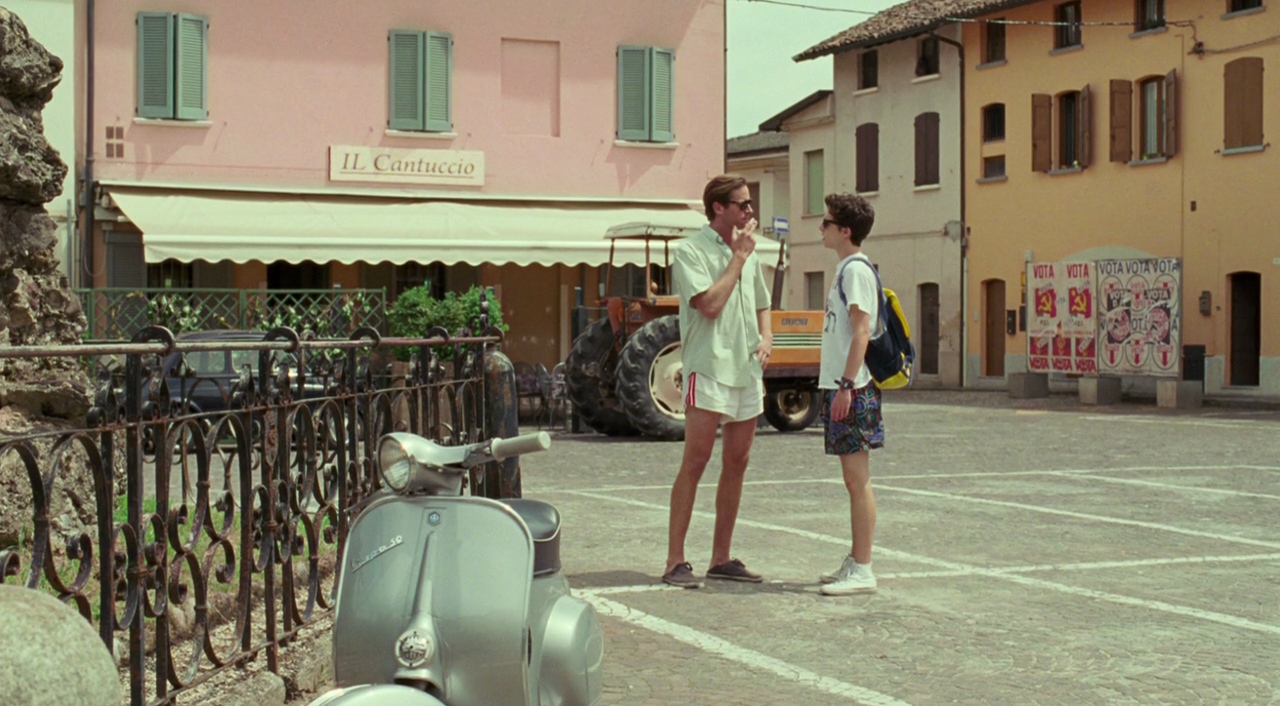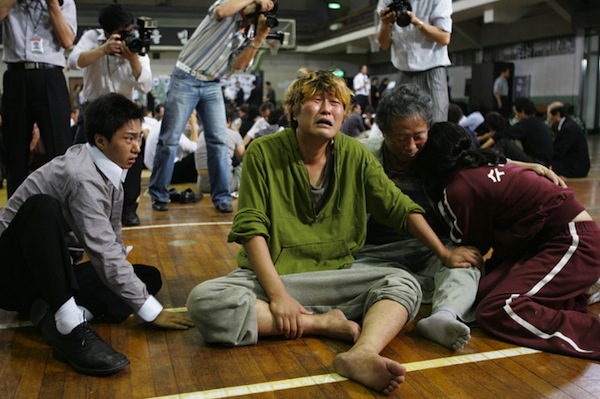
Plot: It's Italy in the 80s and, like every year, a research assistant (Armie Hammer) arrives at the professor's house to perform studies over the summer. During his stay, he forms a deep emotional connection with the professor's son (Timothée Chalamet).

Aga's take: I haven't read any reviews of this movie, but I hope they're great. I think there are many things that can be praised:
- Camerawork capturing the idyllic atmosphere of the scenery and life in a little Italian university town
- Lighting which felt natural for the whole movie
- Acting especially by the lead role, which was very expressive, emotional and real
- Writing and plot which were true to coming of age and captured youth in a non-labelling way
- Music which was integrated into the story, present, memorable
- Moral of the whole story, the simple beauty of it, single monologue scene of the father which captured the greater picture but didn't feel too full of itself but rather like sincere advice given to the viewer. Or maybe more like a painful conclusion about life's realities
- Very subtle background of changes in the political landscape of the story, which remind the viewers that the times the characters are placed in play a significant role
Beyond technicalities, the movie is beautiful. I think the story, although relevant, should be treated as secondary to the actors' play. So many emotions and internal conflicts are presented without any words. Stills from the movie are also P E N G. It's so well acted, so well directed and so aesthetic that I think you can shuffle through the stills and get the whole story and everything that comes with it without watching the movie. And on top of that you get great music and writing?? The longer I think about it, the more I enjoy the memory of this film.

I have a couple of questions that I would like to hear your thoughts to when you watch the movie.

I have a couple of questions that I would like to hear your thoughts to when you watch the movie.
*** SPOILER ZONE ***
Why does the family speak many languages? It would still make sense to have them speak one, it wouldn't take away from their aura of intellect.
Why does the family speak many languages? It would still make sense to have them speak one, it wouldn't take away from their aura of intellect.
Why does the beginning of Elio's relationship with Oliver begin as antagonistic? Is it portrayed that way to show his imatrurity and conflicting feelings or is there more to the way their interactions develop?
Why does Elio play the songs in different styles?
How is the boy's educated background, his love of books and music significant to the story and the way he addresses his feelings / how the environment reacts to his behaviour?
What does it MEAN that they call each other by their own names?
I have my own thoughts on the above but I would like to hear yours first.

I have this thing that follows me around:
I'm not a big fan of touchy movie monologues which are meant to capture the point of the story, but I enjoy returning with my thoughts to the professor's conversation with Elio near the end of the movie (professor is played by Michael Stuhlbarg who I think is THE repression actor haha). He talks about Elio and Oliver having something most people don't have a chance to experience in their lives. He has come close to something similar but there was always something lacking for it to happen.
Firstly, I enjoy the ambigiuity in the monologue. The it is never explicitly named. Has he come close to having a relationship with another man in the past, but he never broke society's expectations to enjoy a relationship? Or does he talk about love in general?
If we take the second interpretation, I think what he says and the way the scene is crafted become more interesting. The professor points out that only a chosen few in the world get to meet someone on this planet that "they can call by their own name". I cannot be sure whether the director has achieved this purposfully to that effect, but I felt the scene was very touching and personal, framed almost as if it was us sitting on the couch next to our dad smoking a cigarette and sharing his reflactions on life.
If we take the second interpretation, I think what he says and the way the scene is crafted become more interesting. The professor points out that only a chosen few in the world get to meet someone on this planet that "they can call by their own name". I cannot be sure whether the director has achieved this purposfully to that effect, but I felt the scene was very touching and personal, framed almost as if it was us sitting on the couch next to our dad smoking a cigarette and sharing his reflactions on life.
Are we just meant to empathise with Elio? Or is he talking to us? But if so, is he reminding us that statistically we are like him not Elio; we will come close but never have this deep connection with another human?
I think by creating this scene to have such an intimate feel, the director contradicts himself. We sit in groups of hundreds in the cinemas, each one recalling a bond in our lives that is so special it's comparable with the one presented in the movie. We empathise with the boy, understand the pain he's feeling and what the hopeless separation is doing to his soul. And then we're told that this bond is one in a million. So either 999,999 of us are dillusional or every bond of love we form, no matter the sex or language, we all get a chance to experience this unique, one-in-a-million feeling. Yada yada the mysterious flows of love and nature, every life is a story untold, blah blah. I don't think the moral itself is a very interesting one, but I think the contradiction of form and substance is an interesting one to think about. Are there any other movies that do that? Do they do it consciously?
Anyway, I enjoyed getting high to this movie. ✌
Anyway, I enjoyed getting high to this movie. ✌

No comments:
Post a Comment